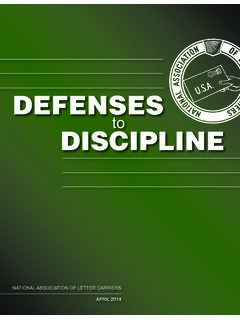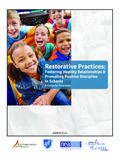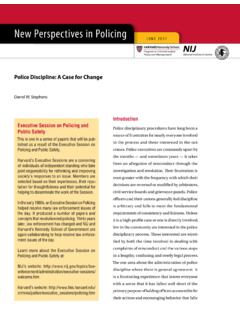Transcription of Assigning Effective Homework - ed
1 Assigning Effective HomeworkEach new school year brings high hopes, great expectations and challenges for both new and seasoned educators. e American Federation of Teachers (AFT) has developed a series called Classroom Tips to help educators start the year o right and anticipate the year ahead. Classroom Tips is developed with you, the educator, in mind. e tips in this collec-tion are taken from real classroom experiences and are part of the AFT s Educational Research and Dissemination (ER&D) professional development program. e AFT is a leader in providing educators the resources they need to help them succeed. Visit AFT s Web site for classroom resources at today. Loan ForgivenessBefore the Year BeginsQuality Classroom Assessment TechniquesBehavior-Management Techniques for Safe Schools2 | AFTB enefi ts for StudentsOver the past 40 years, most research studies on Homework have found that students bene t from doing schoolwork outside of class, both in terms of achievement gains and in developing independence, responsibility, organizational and time management skills, and good study indicates that when learning is extended into the home, the results for students include:Gains in skills, abilities, and test scores linked to Homework and class work;A positive attitude toward schoolwork; More cohesion between school and home envi- ronments.
2 AndAn improved self-concept in terms of the student s ability as a addition, studies have generally found that students who develop good Homework habits tend to be more receptive to the idea that learning can and does take place outside the classroom. e practice of doing schoolwork at home helps students understand that learning opportunities are not limited to school and classroom | AFTC lassroom Tips | 3 Designing Effective HomeworkTo achieve a positive impact on student learning, Homework assignments must be well-designed and carefully constructed. Some speci c research nd-ings include: Homework is most e ective when it covers mate- rial already taught. However, giving an assignment on material that was taught the same day is not as e ective as an assignment given to review and reinforce skills learned is most e ective when it is used to rein- force skills learned in previous weeks or is less e ective if it is used to teach complex skills.
3 Characteristics of Good AssignmentsWhen teachers plan Homework , they should consid-er the characteristics listed below. Good Homework assignments:Provide clear instructions for students; Can be completed successfully; Are not too long; Can be completed within a exible time frame; Use information and materials that are readily available;Can be completed within a exible time frame; Use information and materials that are readily available;4 | AFTR einforce and allow practice of previously taught skills;Are not just un nished class work; Are interesting to students and lead to further exploration and study;Stimulate creativity and imagination in the appli- cation of skills;Encourage students to work cooperatively; and Stimulate home and class discussion. Importance of FeedbackProviding students with speci c, timely feedback is essential to learning. Students need information about their strengths and weaknesses, what they know and don t know, and how well they are per-forming.
4 Researchers have found that students who received personal, pertinent feedback about their Homework errors outperformed students who received only scores on their Homework assignments. Researchers have identi ed four questions that teachers should ask themselves as they review a student s Homework assignment:Is there an error? is the probable reason for the can I guide the student to avoid error in the future?What did the student do well that could noted?Classroom Manage-ment and Instructional ConsiderationsStudents must understand the expecta-tions for Homework , and that they will be held accountable for completing their assignments. is depends on e ective classroom management and instructional giving assignments, teachers should:Ensure that students know the reasons for the assignment;Assign both short-term and long-term Homework ; Provide a variety of assignments with di erent levels of accountability;Communicate that Homework will be part of the students grades;Have and inform students of the standard of qual- ity expected;Occasionally allow students to create the assign- ments; andOccasionally allow for choice.
5 Finally, teachers should not assume: at students have acquired knowledge or skills taught at an earlier time; or at resources are available outside the classroom. Are you new to teaching? See videos of advice from veteran teachers at HomeworkDos and Don tsDosDon plan Homework with topics and skills that:Are familiar to students; Have been introduced in class; Are interesting and challenging; Can be completed in a reasonable amount of time according to grade and age;Give students the sense that they are making progress; andReview and reinforce skills already taught. Do not assign Homework that:Is unfamiliar, boring or impossible to do; Is uncompleted seatwork; Requires complex skills or requires unreasonable time frames; orIs redundant. create the general understanding that learning takes place inside and outside of school and classrooms. (Develop a work ethic for at-home assignments.)Do not assign Homework as a time filler to keep students busy, a paper-and-pencil babysitter or a punishment for not doing class plan ahead so that there is sufficient class time to give explicit directions for the Homework assignment and to answer not wait until the last minute to organize and assign the home-work.
6 You risk giving useless or impossible tasks and/or giving inadequate ensure that all students have access to all resources needed to complete the Homework assignment and that written directions are not assume that all homes have equal resources, that all parents have equal skills and talents to support their children as learners, or that all neighborhoods provide access to resources ( , transportation to the library). designate a special place in the classroom for Homework (take-out and turn-in).Do not risk the chance that a completed Homework assignment could get lost in a desk, locker or somewhere in the classroom. review all Homework assignments once students have submitted not collect any Homework you do not intend to check, review or encourage parents to support their children s Homework not assign Homework that is so difficult and unfamiliar to students that their parents are tempted to: Do the work for them; Accuse their children of being inattentive in class; or Accuse their children of failing.
7 Consider reasonable time frames for Homework assign-ments, based on the intent of the lesson. Some assignments may span more than one day. If this is the case, give careful directions. Also, consider that other teachers may be giving Homework assignments with the same time not assign long-term projects without frequent monitoring by the teacher and scheduled progress reports from the establish, teach and publish Homework policies and procedures to ensure that students and parents understand them ( , when assignments are due, where they are to be submitted, how to make up missed assignments, connec-tions between Homework and class grades, if any).Do not maintain vague or subjective practices about Homework that result in unfair and inexplicable sanctions against some stu-dents and not others ( , lowering of a student s grade or taking away classroom privileges) or that result in loss of class learning time spent on discipline and reprimands about uncompleted Homework HomeworkDos and Don tsDosDon plan Homework with topics and skills that:Are familiar to students; Have been introduced in class; Are interesting and challenging; Can be completed in a reasonable amount of time according to grade and age;Give students the sense that they are making progress; andReview and reinforce skills already taught.
8 Do not assign Homework that:Is unfamiliar, boring or impossible to do; Is uncompleted seatwork; Requires complex skills or requires unreasonable time frames; orIs redundant. create the general understanding that learning takes place inside and outside of school and classrooms. (Develop a work ethic for at-home assignments.)Do not assign Homework as a time filler to keep students busy, a paper-and-pencil babysitter or a punishment for not doing class plan ahead so that there is sufficient class time to give explicit directions for the Homework assignment and to answer not wait until the last minute to organize and assign the home-work. You risk giving useless or impossible tasks and/or giving inadequate ensure that all students have access to all resources needed to complete the Homework assignment and that written directions are not assume that all homes have equal resources, that all parents have equal skills and talents to support their children as learners, or that all neighborhoods provide access to resources ( , transportation to the library).
9 Designate a special place in the classroom for Homework (take-out and turn-in).Do not risk the chance that a completed Homework assignment could get lost in a desk, locker or somewhere in the classroom. review all Homework assignments once students have submitted not collect any Homework you do not intend to check, review or encourage parents to support their children s Homework not assign Homework that is so difficult and unfamiliar to students that their parents are tempted to: Do the work for them; Accuse their children of being inattentive in class; or Accuse their children of failing. consider reasonable time frames for Homework assign-ments, based on the intent of the lesson. Some assignments may span more than one day. If this is the case, give careful directions. Also, consider that other teachers may be giving Homework assignments with the same time not assign long-term projects without frequent monitoring by the teacher and scheduled progress reports from the establish, teach and publish Homework policies and procedures to ensure that students and parents understand them ( , when assignments are due, where they are to be submitted, how to make up missed assignments, connec-tions between Homework and class grades, if any).
10 Do not maintain vague or subjective practices about Homework that result in unfair and inexplicable sanctions against some stu-dents and not others ( , lowering of a student s grade or taking away classroom privileges) or that result in loss of class learning time spent on discipline and reprimands about uncompleted Homework American Federation of Teachers:Supports you in the classroom. Effective learning only takes place when high-quality teachers, with the support of other compe-tent professionals, have the materials and assistance needed to accomplish the task. Your union is a strong advocate for quality classroom materials that are aligned to the standards of achievement we expect our students to meet. We also insist that state and district assessments for measuring student progress are aligned with these standards and that the assessments be used appropri-ately to support student you prepare. No matter how well prepared you may have been before enter-ing the classroom, there is always room for improvement.















